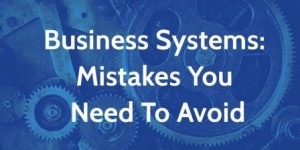I love my job. When people ask me what I do for a living and I reply with “consulting” there’s always that glazed-over look in their eye. Some nod and pretend they know what I mean. Others are curious enough to ask questions such as “consulting for what?” or “consulting for whom?” When I explain that I’m a Demand Generation Strategy Consultant the confusion and lack of understanding is further magnified. I can see their gears turning. What is Demand Generation? Why would there be consultants for that and what does that mean you actually do?
 Perhaps I should put it in terms everyone can understand. How about this….I work with large businesses that sell to other businesses to help them figure out how to generate awareness, turn the awareness into sales opportunities, and ultimately drive revenue from their marketing and sales efforts. We do this using buyer research, technology, content, data and lead management best practices. Even that is quite a mouthful, isn’t it?
Perhaps I should put it in terms everyone can understand. How about this….I work with large businesses that sell to other businesses to help them figure out how to generate awareness, turn the awareness into sales opportunities, and ultimately drive revenue from their marketing and sales efforts. We do this using buyer research, technology, content, data and lead management best practices. Even that is quite a mouthful, isn’t it?
Yes, it is a mouthful but it’s an honest answer to the question. I may not be splitting atoms or curing cancer, but I’m helping enterprise companies understand their buyers, leverage technology, and build marketing programs that will generate real results which are ultimately, measured by revenue. There are four roles that Demand Generation Strategy Consultants play:
Researcher-
One of the reasons I love my job is that I have the opportunity to work across many different industries. The first thing a Strategy Consultant does when working with a new client is conduct copious amounts of research to understand their market and their buyers. Without a deep understanding of a client’s buyers, it’s impossible to build an effective Demand Generation strategy. Over the course of my past eight years as a consultant, I’ve learned about everything from band saw blades and financial software, to medical devices. I know just enough to be dangerous (and entertaining at a cocktail party). This keeps the job extremely interesting and challenging at the same time.
Business and technology strategist-
In addition to learning our clients’ business, a Strategy Consultant must also stay up-to-date with industry trends, best practices and technology. Because we’re on the “outside” our clients expect us to be knowledgeable and armed with all the latest facts, figures and statistics. We must know what works and what doesn’t and why or why not across all industries, across all technologies. It’s a lot of pressure, but it’s also why we have an insatiable appetite for information and strive to always be learning. No one ever said the life of a Strategy Consultant was dull.
Therapist and mediator-
One of the most challenging things a Strategy Consultant does is drive alignment between different groups, both internally and externally. As with the changing industries we work with, we also work with different personalities and cultures as we move from client to client. Let’s be honest – transforming the way an enterprise company conducts their demand generation efforts is no small feat. There are always people within the client company who believe in what we’re working towards. But there are always just as many who are threatened by it or even opposed to it.
Therefore, a critical role we must play is to ensure everyone is moving toward the same goal. We must try to read our clients, identify quickly who those people are who aren’t in favor of the pending change, and do our best to prevent them from spreading the negativity to others, or better yet, get them to open their minds to the possibility of positive change within their organization. It’s really about change management and it takes time. And as a Strategy Consultant, you ARE the change. Some days that means playing the role of psychologist or group leader. Some days it means simply listening and making people feel heard. It’s a slow-moving process but worth the effort and a definite requirement of the job.
Educator-
Running somewhat hand-in-hand with driving change is the opportunity for Strategy Consultants to teach. Having the opportunity to work in various industries, companies and cultures, we can share our learnings not only among ourselves, but also with our clients. This insight allows us to continuously hone our methodologies and benchmark our efforts against ourselves, as well as others in the industry.
One of the most rewarding things to have happened to me was when a client expressed how much they’d learned through the eighteen-month process of Demand Generation transformation. I remember when we first started working together everything seemed foreign to this client – from the language to the coding, to the notion of personas, to the new technologies we implemented. However, within a couple months, I heard this client repeat back to me the terminology I’d been using with her and I knew that something had resonated and she had turned a corner. By the time we reached program launch, she could train her internal team as well as I could have. That means a consultant has done their job well.
I’m sure this role I love so much will continue to evolve as our organization grows and as the industry continues to develop. The role of Strategy Consultant is not for everyone. I’d be lying if I said there weren’t frustrating days, ridiculous timelines, and challenging situations to contend with. However, I can’t think of another role in which I’d have the opportunity to learn so much and drive such change within my clients’ organizations.
Business & Finance Articles on Business 2 Community(73)
Report Post







